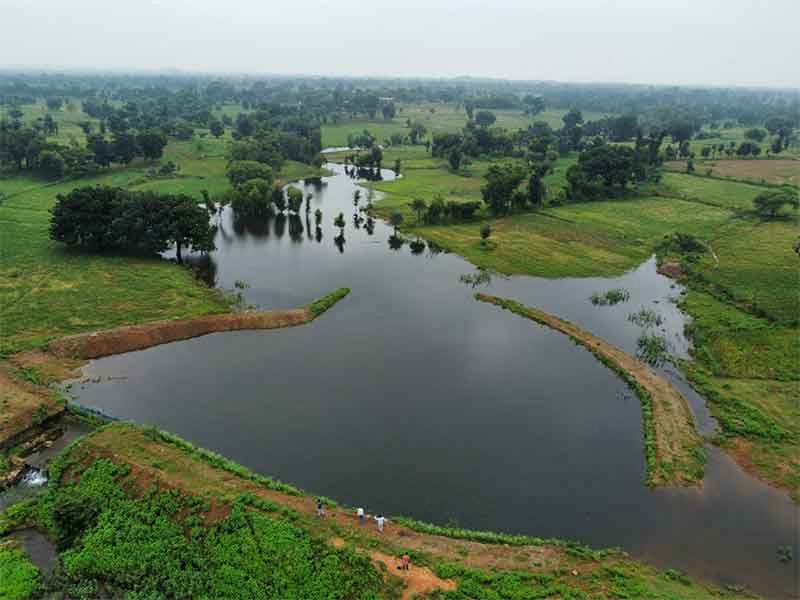
In a report released on June 5, 2025 GRAIN, an international organization that has consistently researched and campaigned for food security and sovereignty of global south and its communities, has exposed the recent and ongoing efforts by powerful interests in Pakistan to grab land and water resources to serve corporate and foreign interests. A note by the GRAIN team accompanying this report states, “Pakistan is rolling out the red carpet for Gulf investors. It’s all part of the Green Pakistan Initiative, spearheaded by a powerful military-backed body designed to do whatever it takes to streamline corporate farming. Saudi Arabia and the UAE have jumped at the opportunity, pouring billions into transforming Pakistan’s agricultural landscape.”
The Saudis acting through their agribusiness companies, this note states, are securing vast tracts in Pakistan for massive cattle farms and dairy operations, while the Emiratis are also deploying their “seasoned farmland grabbing companies —fresh from amassing nearly a million hectares of foreign soil worldwide.”
However all this is challenged by fierce opposition across Punjab and Sindh. As GRAIN explains, “local farmers’ organisations denounce that the government is using corporate farming as a smokescreen for land grabs in favour of corporate mafias. Critics warn that the water meant to serve these new mega-farms, could spell disaster for downstream regions already parched by drought. They’re also not buying the promises of promoting the country’s food security. They see cash crops that, if any, will end up fulfilling other countries’ food security but not Pakistan’s.”
Further GRAIN says in its note, “the parallels to the troubled China-Pakistan Economic Corridor experience loom large, with many fearing these new investors will follow the same pattern—extracting wealth while leaving broken livelihoods and environmental devastation behind.”
The original report titled ‘Gulf investors in, locals out—Pakistan’s corporate farming agenda’ has been prepared in collaboration with local organizations opposed to land-grab. This report says that nearly 400,000 hectares of land has already been allocated to private investors. Chinese companies have also moved in with agricultural projects that can be very harmful for local food security. One of these relates to introduction of genetically modified cotton, while another one relates to export-oriented peanut monocultures.
All this is being widely resisted by farmer organizations and others who say that such policies will lead to displacement of small farmers while other farmers and herders will be cut off from water and land. The lack of transparency in land auctions and other deals has also faced criticism as people are not aware on what terms land is being handed over to corporate interests or mafias. There is a tendency on the part of the promoters of these projects to classify diverted land as wasteland so as to avoid criticism. But people refute this and it appears highly unlikely that corporate interests will bring in investments just for ‘wasteland’.
At a time when water stress already exists for local farmers over wide areas, people fear that the big corporate projects supported by military and other powerful interests will grab a lot of water while the water scarcity for others will be accentuated further. It was in this context that there was very fierce opposition to new canals being planned to take water to these corporate water-intensive projects in Cholistan and other regions. Keeping in view this intense opposition, these canal projects have been suspended for the time-being. However this issue can arise again as after all water for water-intensive new projects on vast areas of land has to be found somehow.
There is increasing concern on this issue in recent times which is also related to the increase in local food insecurity following the pandemic as well as very devastating floods in the country. These two factors had led to serious deterioration in the food security of the country in recent times. In such conditions according high priority to local food security should obviously get the highest attention, but powerful interests are taking the farming priorities elsewhere.
Subscribe to Our Newsletter
Get the latest CounterCurrents updates delivered straight to your inbox.
Bharat Dogra is Honorary Convener, Campaign to Save Earth Now. His recent books include Planet in Peril, Saving Earth for Children and A Day in 2071.













































